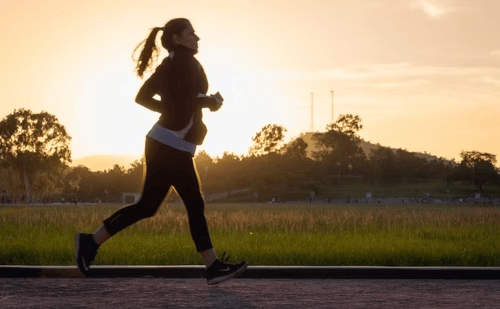A neighbour sent me a WhatsApp chat last week with a million-dollar question: “Who are we voting for?” It was an awkward question. I have been discussing all the theories about the qualities the next president should have but I have paid little attention to a crucial part of the equation: what determines the voting behaviour of the electorate? Just as my neighbour was asking me who we should vote for, so also do millions of Nigerian voters ask their leaders and influencers the direction to go. But while voters like my neighbour would analyse the choices they have before taking a position, many voters do not engage in such rigour. I intend to discuss why it is so in this article.
I have been monitoring public enlightenment campaigns imploring Nigerians to get their permanent voters’ cards, popularly known as PVC. I love the messaging. “INEC does not count prayer points — get your PVC.” Pray but register to vote. Lovely. “INEC does not count votes on Twitter – get your PVC.” Walk the talk. Fantastic. The beauty of democracy is the power of the people to decide who would pilot their affairs. Unlike military rule and one-party democracies where we have little or no say on who would call the shots, multi-party democracy puts the power in the hands of the voters. How sweet it is for you to vote freely, for your vote to be counted and for your vote to count!
However, this begs the question: does a PVC in hand translate to making the right choice? This is a question democracy cannot answer convincingly. Having the PVC does not mean you will make an informed decision on election day. It only means you can vote. In my understanding, some candidates win not because they are good but because they are considered better than others. Some win because they have the war chest and election machinery. Some win because they appeal to big constituencies. Hardly do candidates win elections because they are the best brains a society can offer. In Nigeria, to win an election takes more than paper qualifications and power of poetry.
In a democracy, the majority carries the day. How are we sure the majority will make the right choice? How will the majority know who is going to do well in office? I ask these questions partly because Nigerians have voted for all kinds of leaders since 1999 and are always disillusioned with the governance outcome. Does that mean their collective judgment has always been wrong? Many analysts often say we have bad leaders because Nigerians sell their votes. Does that mean if they had voted for candidates who did not offer them money, those ones would have done better in office? Voting right is one thing; performing well in office is a different proposition altogether.
To be clear, I am not here to question the value of democracy. I believe in democracy. I was born under military rule. I schooled under military rule. I started life under military rule. I have now lived under democracy for 22 unbroken years. I know the one I prefer. But I think we make some flattering assumptions about democracy, particularly about its supposedly in-built capacity to produce good leaders. This assumption often overlooks the deficiencies and deficits of democracy. While elections should put those voted into office on their toes — knowing they stand the risk of being voted out if they disappoint — there are no guarantees of good governance either way.
Back to the question: who should we vote for? That question is what several millions of Nigerian voters ask their influencers at election times, and the answer is what mostly determines their choices at the polling booth. They listen to their influencers. Therefore, as the 2023 elections draw nearer, I want to help us understand the mentality of the Nigerian voter — as I often try to do at election times — in order to moderate our expectations and provide us with analytical tools that may be useful in interpreting why we vote the way we do. How does the mind of the average Nigerian voter work? What facts and factors play the biggest role in shaping voting behaviour?
Nigerian voters, whether or not they are registered members of the political parties, are influenced by four broad interests: one, material; two, ideological; three, primordial; and four, political affinity. By material interest, I mean “stomach infrastructure”. It pulls a significant crowd in Nigeria. A small bag of rice does a lot of trick. In any poor society, food is a big appetiser for vote sellers. The material-induced voters are freelancers and are usually only valuable at election times. They do not harbour any pretence — they are in it for the one-night stand. They should not be confused with loyalists whose material needs are regularly taken care of by their godfathers and political leaders.
The second category is “ideological voters”. There are Nigerian voters who still believe in the ideals of how a society should run. They think that in the whole mess, one party or one candidate is still better than the other. So, while cynics would say “all politicians are the same” or “all parties are alike”, voters of this hue would argue that some are better than the others. They are not explicitly motivated by emotional interests — they do not find it hard to ignore ethnic, religious and regional sentiments in casting their votes. This category is a tiny minority in Nigeria but I think it is fast gaining ground. I have encountered many Nigerians, mostly educated ones, in this category.

Many Nigerian voters are, expectedly, motivated by “primordial” interest — the third category. I use this to cover ethnic, regional or religious emotions. If they have to choose between a candidate from their region/ religion and someone else, they will automatically vote for their ilk. But if no strong candidate of their kinfolk is on the ballot, they are likely to vote for whoever is “closer” to them — someone likely to serve their interests or who has often identified with them. The fundamental motivation here, therefore, is group interest. This may explain why some communities historically and consistently deliver as many as three quarters of their votes to particular political tendencies.
The fourth “interest” is “political affinity”. In this category, it is not so much about ethnic or religious affiliation, but historical political alliances. In the past, for example, Southern minorities used to vote for the mainstream parties from the north. This affinity is often defined by the political and traditional rulers. If they direct their followers and subjects to vote for someone from another place or party, they will comply. For instance, Kwara state voters used to go anywhere the late Dr Olusola Saraki went. Within 48 hours to the August 1983 governorship election, he reportedly directed his supporters in the NPN to vote for Chief CO Adebayo, the UPN candidate. Adebayo won.
A word of caution here. Sometimes, the godfathers read the room before taking a decision on the direction to go. There are times they call the shots and get away with it. In fact, their followers will come to them and ask: who should we vote for? Other times, they can see the direction their followers want to go and they play along to avoid rebellion. This is not limited to the general election. From party formation — where alliances are revived or shaped — to primary elections — where candidates are picked — the leaders delicately play their cards to keep their flock in line. It is not a mistake that states such as Borno, Lagos and Enugu have always voted along certain patterns.
I have to submit at this point that these categories are not mutually exclusive. They do overlap at times, depending on the political currents. Primordial interest and political affinity are often conjoined. Both are highly emotional in nature, unlike “stomach infrastructure” and “ideology” that are mostly rational choices. The stomach is fluid and based on “survival”, while ideology is a conviction. However, “stomach infrastructure” can fail if people’s emotions lie elsewhere. “Goodies” cannot sway them, no matter how big. In 1999, the south-west voted for the Alliance for Democracy (AD) because of June 12 emotions. All the bags of rice from the PDP could not sway them.
Ideological interests are, however, mostly fixed and could be rigid. That is why some parties still have members even when it is clear that they will not win a single ward anywhere. It is often argued that Nigerian parties do not have ideologies, that they are in the same boat. This, it is said, makes it easy to defect from PDP to APC and back to PDP. I understand this perspective. In the US, you know what the Democrats and the Republicans stand for. In the UK, you know what the Conservatives and Labour are about. In Nigeria, APC and PDP are look-alikes. But my definition of ideological voters is not based on partisanship alone. In fact, many ideological voters are blind to party affiliations.
With this at the back of our minds, we should approach 2023 with useful analytical tools. To start with, these interests will play out in the primary elections of the political parties. Party members will look up to their leaders and influencers in choosing who to vote for among the aspirants. Some will be influenced by the stomach infrastructure distributed by the aspirants during the primaries. You are not likely to find too many ideological voters at the primary elections. Rather, those who go to their leaders to ask “who should be vote for” are going to be in the majority. Ideological voters will be more useful during the general election when the candidates are already known.
What am I driving at? Since we have a fair knowledge of the voting behaviour of Nigerians, we should be working harder on the godfathers, influencers and kingmakers to make the right choices as much as we are working on the voters to do the right thing. Our big task as campaigners for good governance is to keep drumming into the ears of the political elite the need to back competent and patriotic candidates in the primaries. Yes, we should keep asking Nigerians to get their PVCs and vote right, but we should also work seriously on the kingmakers so we can be spoilt for choice at the polls. We can then hope to pressure those elected to deliver the goods. It is a long journey.


















